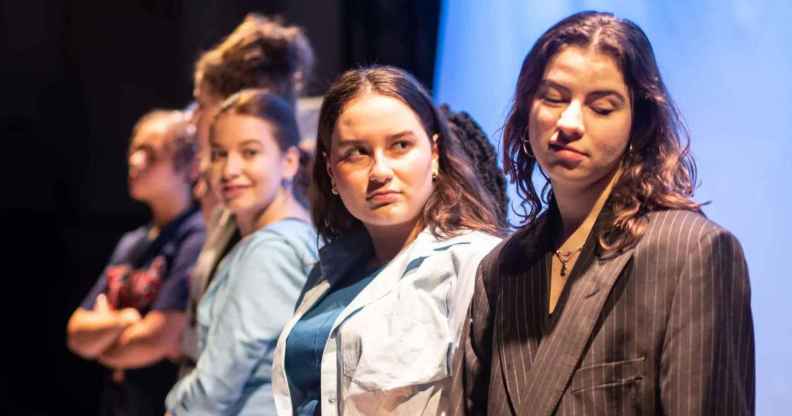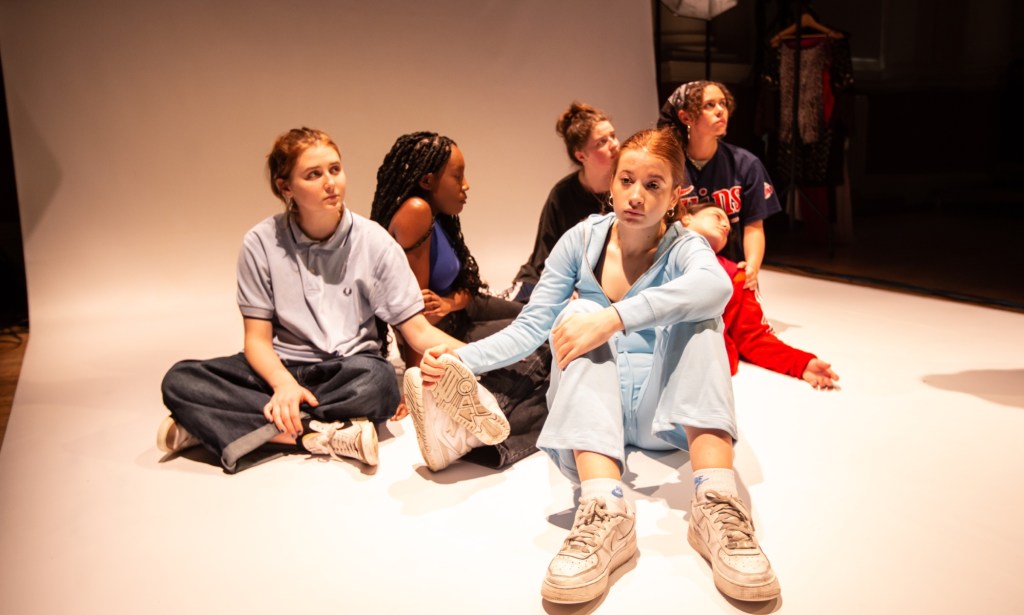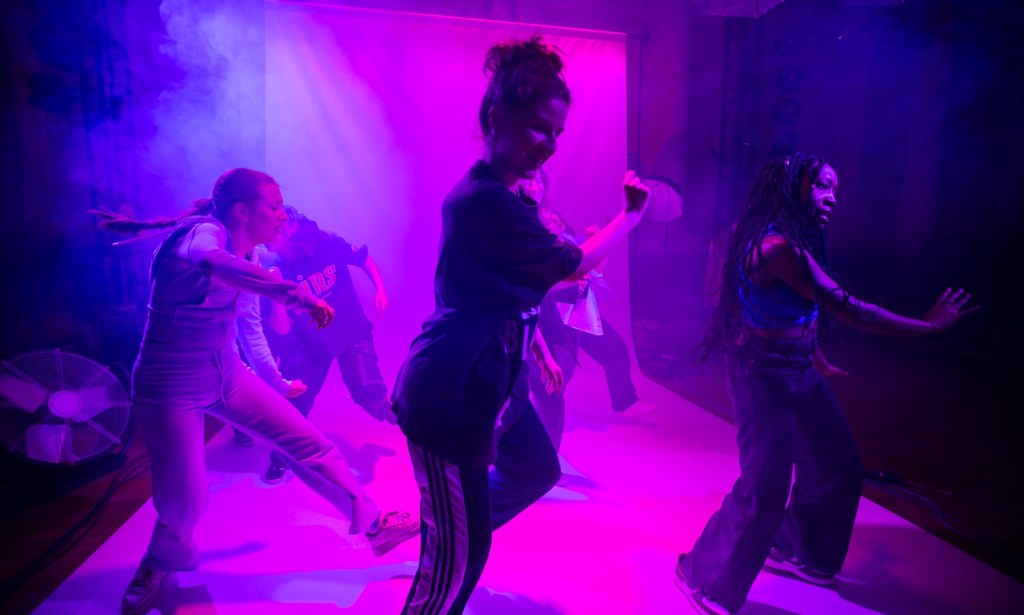‘Who you looking at?’: In Charlie Josephine’s Flies, teenage girls discover the power of female rage

Charlie Josephine’s Flies (Chelsey Cliff/Cat Fuller)
Charlie Josephine’s Flies offers a harrowing look into the relentless impact of the digital era on the psyche of teenage girls.
The playwright brings a disruptive take to William Golding’s Lord of the Flies by showcasing seven young actors who raise their voices against the issues created by the patriarchy.
The play begins with a typical look at the challenges most girls face when it comes to safety, everyday sexism and internalised misogyny; and although it runs the risk of not adding anything new to a conversation countless women have already addressed in the cultural sphere, Josephine brings a distinctly new take by leveraging the perspectives of teenagers.
While never letting on where the girls seem to be trapped – perhaps a mental prison of society’s making – the play immerses the viewer in their world. It remains incredibly self-aware, almost responding to the audience in a one-sided conversation, picking up the points it knows we are already considering.

One thought-provoking take looks at the feeling countless young girls feel at wanting the attention of men – even if it is uncomfortable – and the way many girls count how often they have been cat-called compared with their friends, and the impact this has on their self-esteem.
It picks apart how embedded male validation is in our society, which touches everyone from lesbians to teenagers who just want to go about their lives without being harassed.
The show also takes several risks by breaking the fourth wall, interjecting the writer’s thoughts throughout. Although it could have backfired, it is Josephine’s sometimes-hilarious and sometimes-sobering thoughts, using the actors as a mouthpiece, that keep the audience hooked.
Josephine has been candid about their struggles writing certain moments, previously explaining how they understand the contradictions of the arguments they have presented and even why they made certain directional choices.
And interspersed throughout the heavy scenes, which cover everything from body-shaming and the perception of female masturbation to the slippery slope of social media, are joyful dance breaks.
As each girl gets her moment in the spotlight to unpick her insecurities, any woman watching will find at least one topic that resonates with them.
It feels so authentic because we’ve all had these lunchtime conversations with our friends, creating our own safe spaces when society hasn’t.
And given Josephine’s own identity as genderqueer, it incorporates the much-needed intersectionality of the female experience beyond the cis-hetero archetype.

Growing up, our female friends are often the only ones we can turn to for advice when the system fails us. And unlike other Lord of the Flies reimaginings, where people often push the idea that stranded girls would rather stay prim and proper, Flies flips this on its head.
It joins a growing trend of feminist takes on Lord of the Flies, including hit TV shows such as Yellowjackets and Prime’s The Wilds, which bring righteous female rage to the forefront of their commentary.
By the end of the play, the audience is treated to a chaotic display as the actors destroy the set around them in fits of fury and passion at centuries of female oppression and the pressures of the digital age.
That being said, the play offers a stream of problems with very few answers on where to go from here. Although it saves itself with the unique scripting, there are points where it feels as if it is going over well-trodden ground when it comes to the feminist movement.
Much like the girls, the audience is offered nowhere to escape but instead forced to confront the pain of these teenagers head on.
Flies runs at Shoreditch Town Hall until 11 March.
How did this story make you feel?

